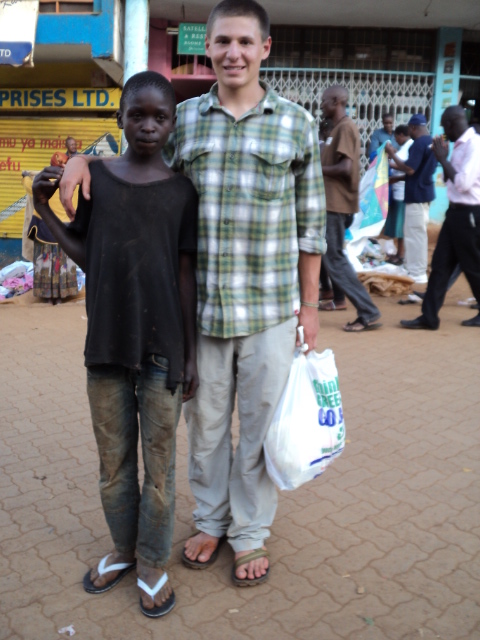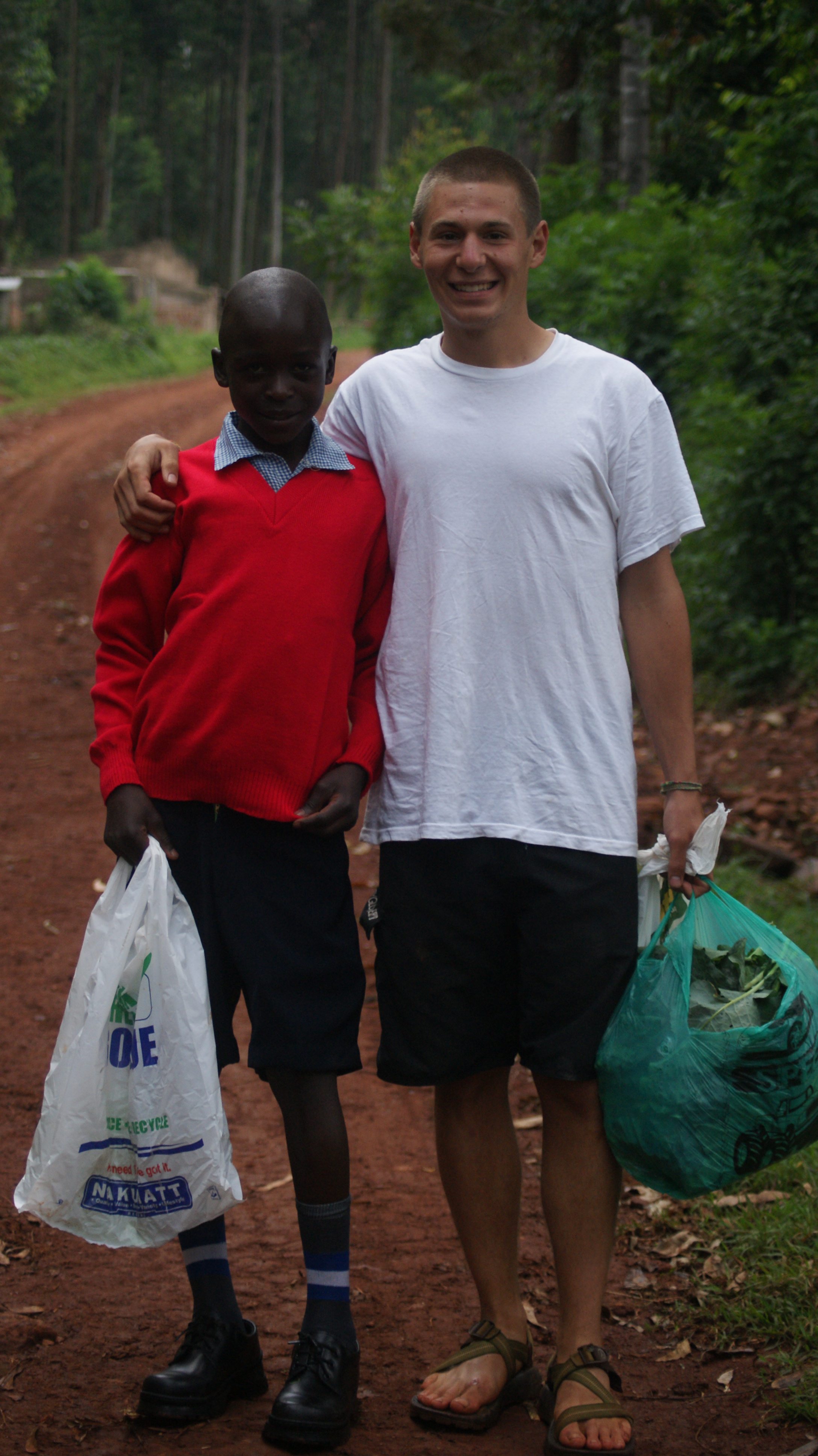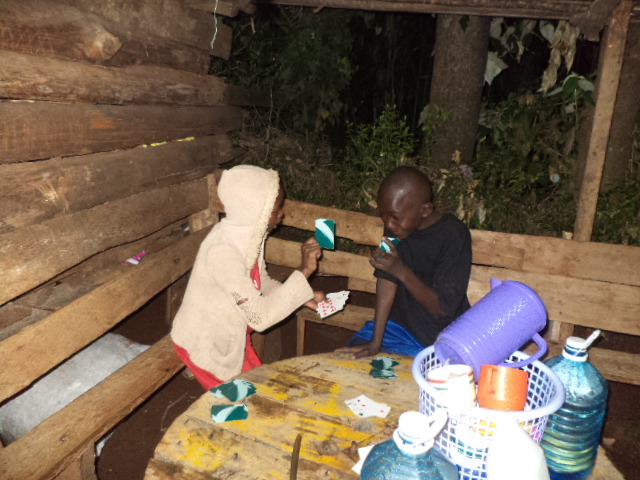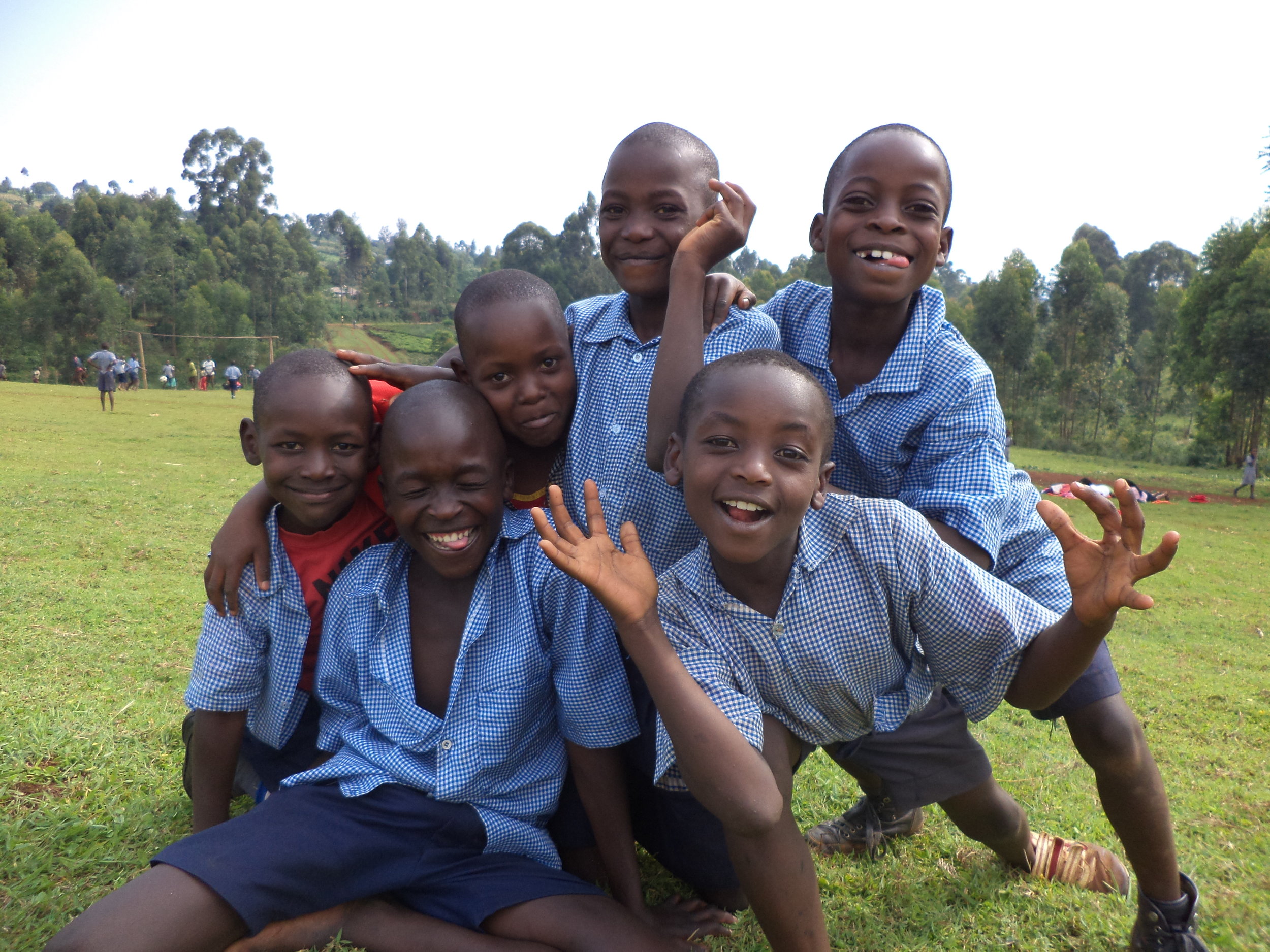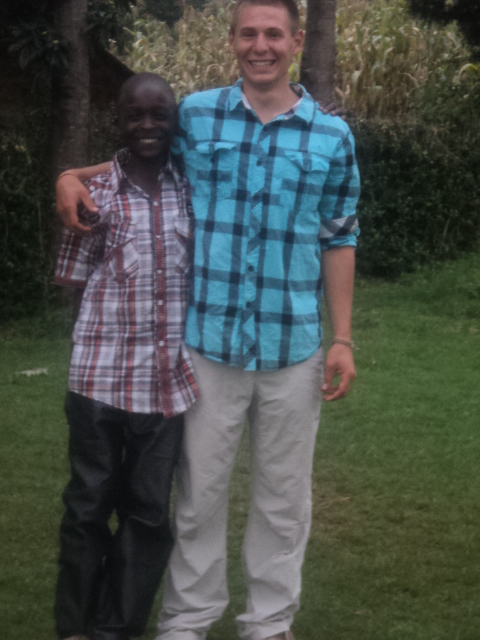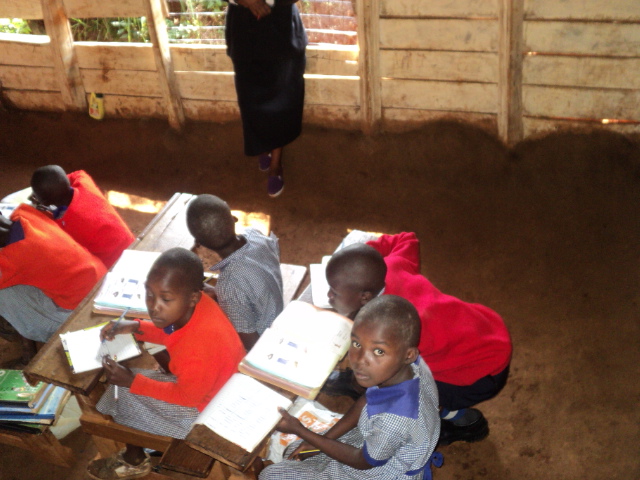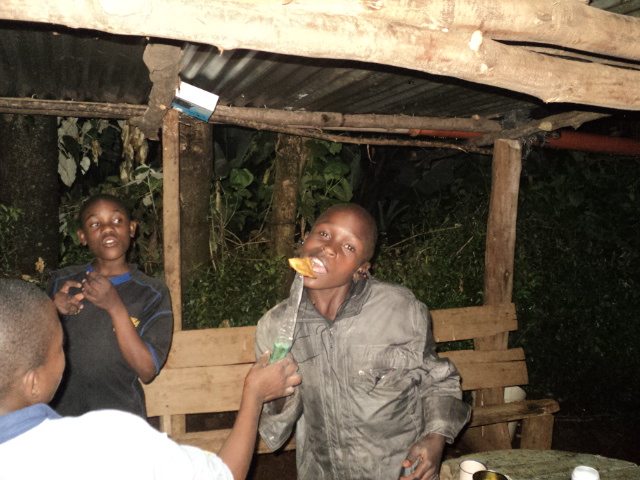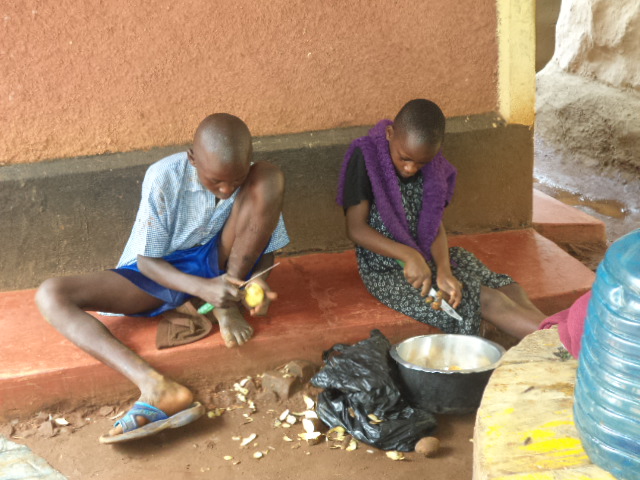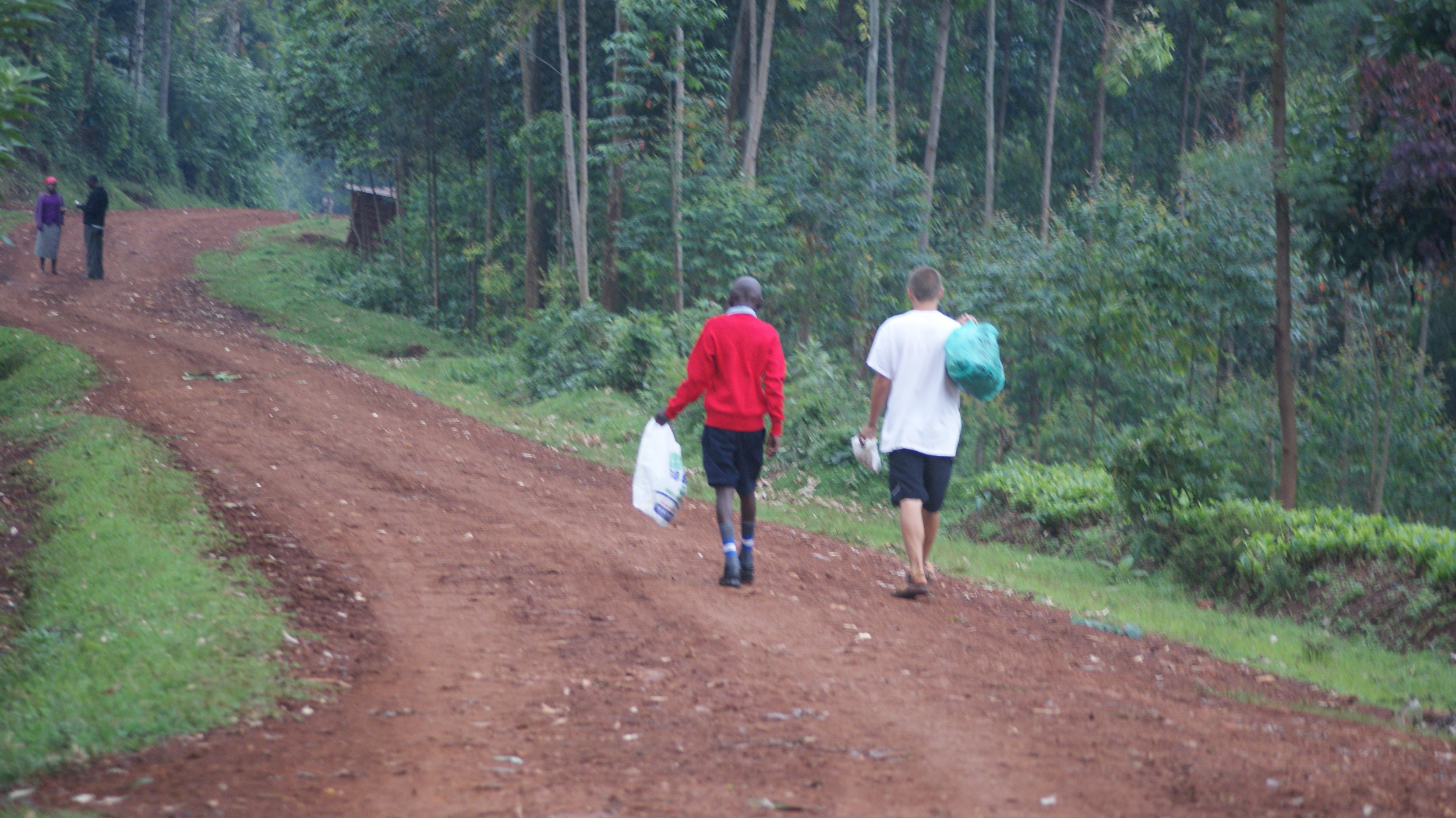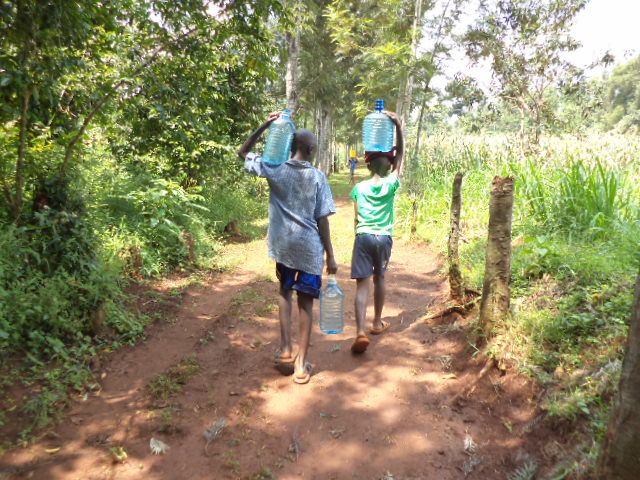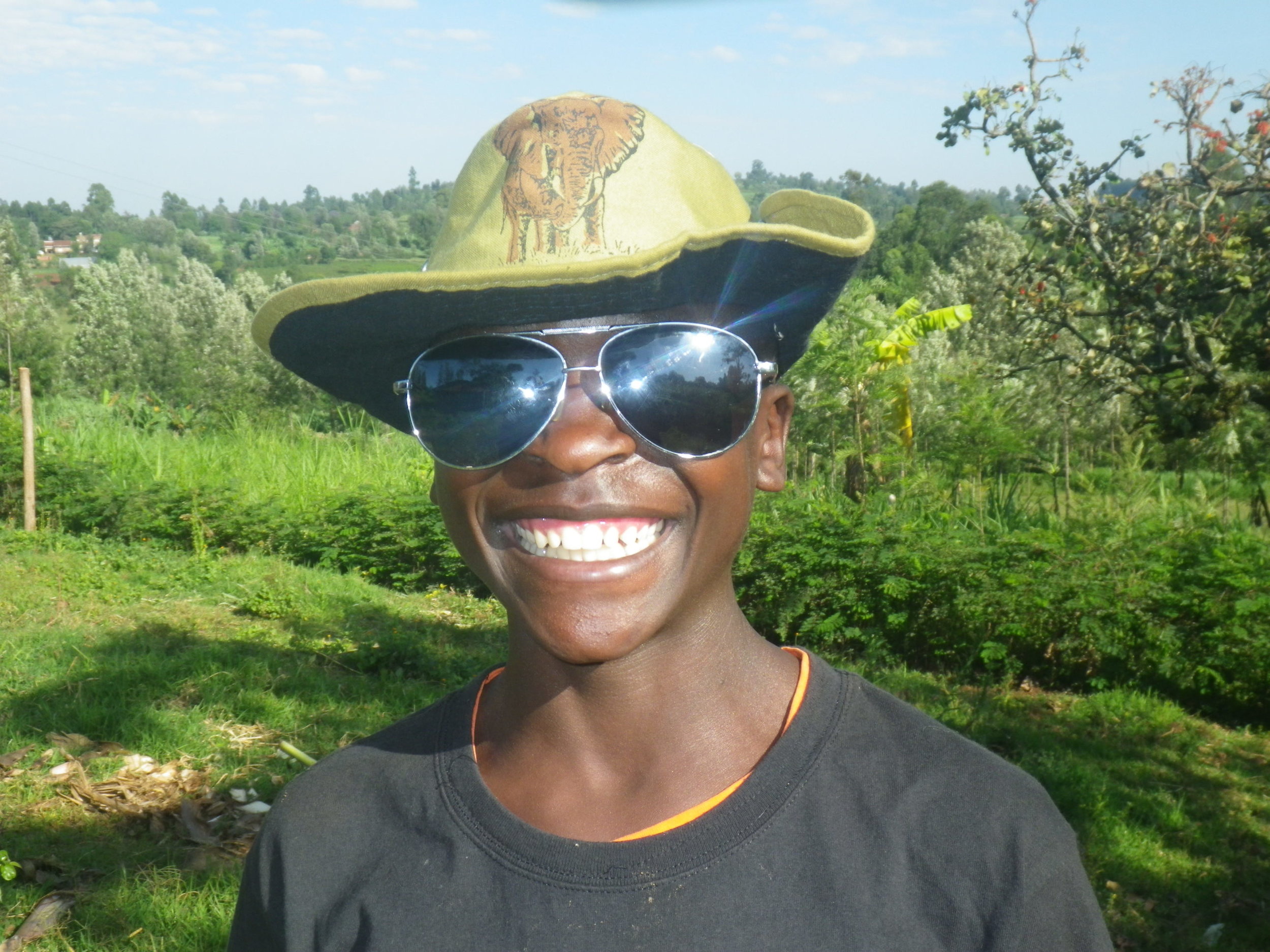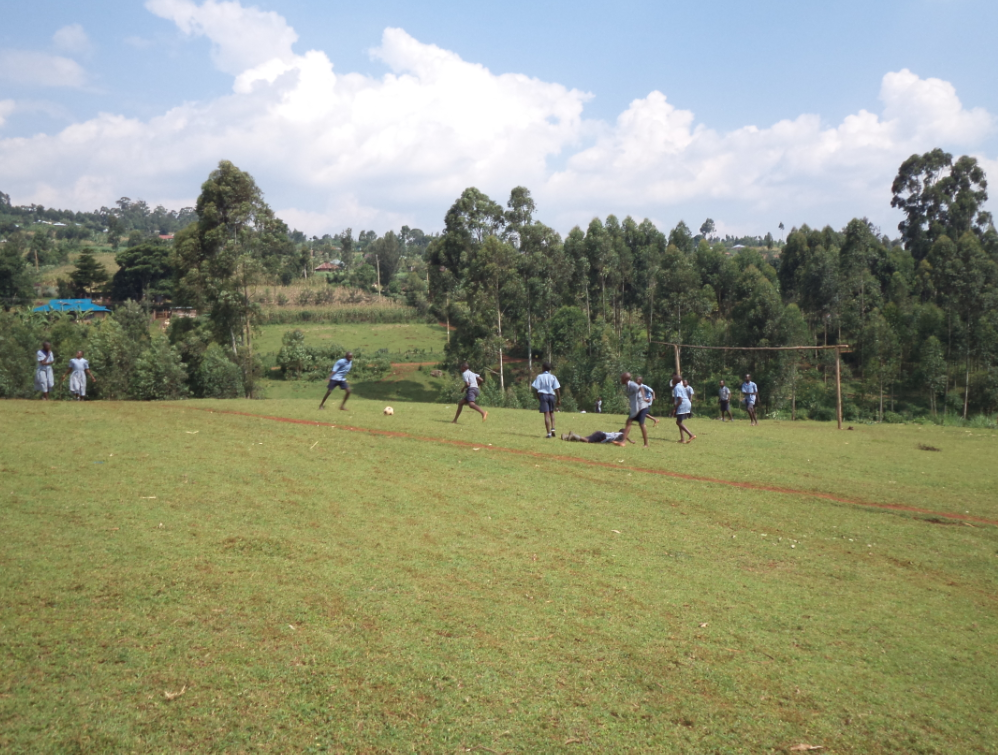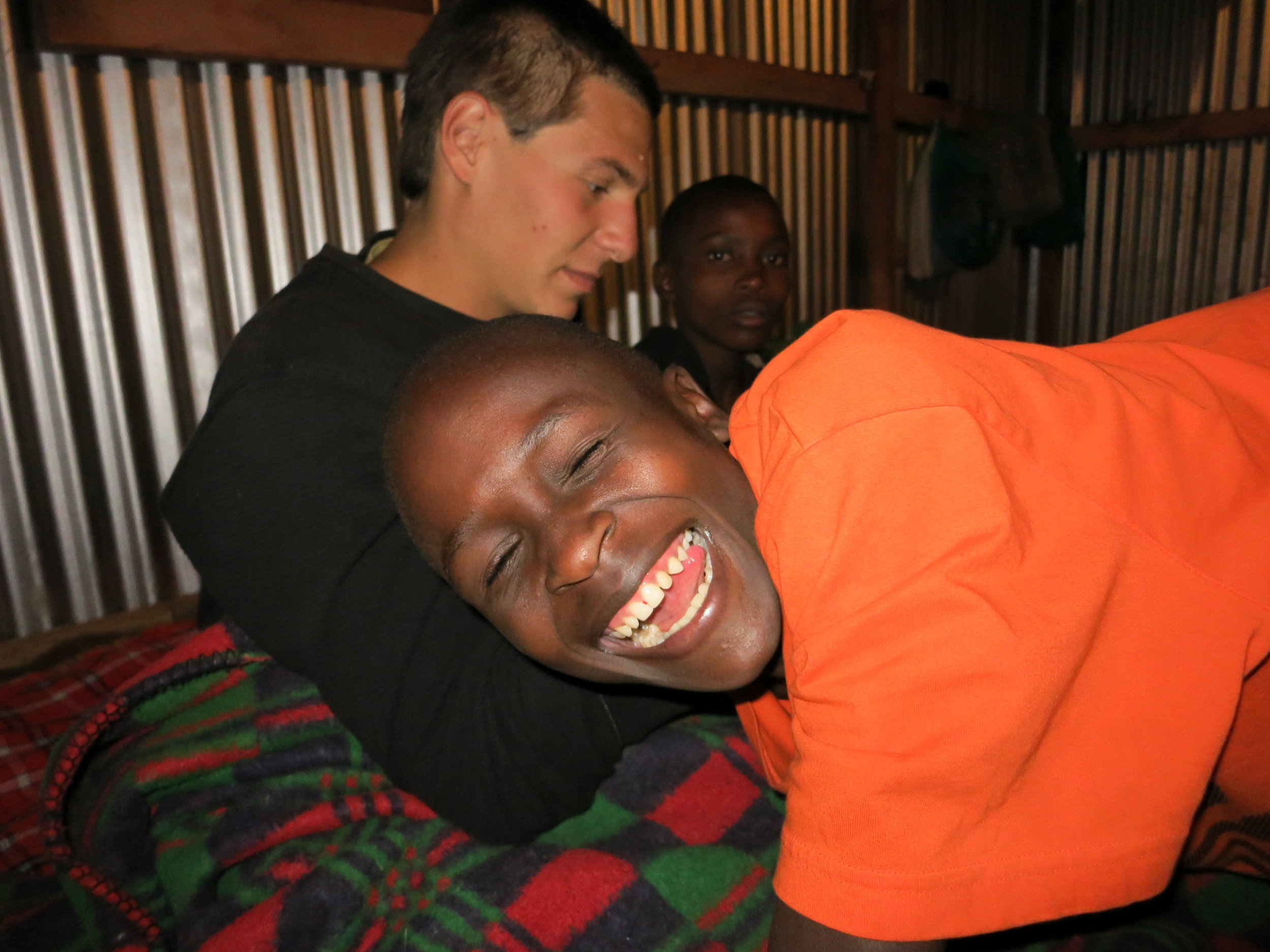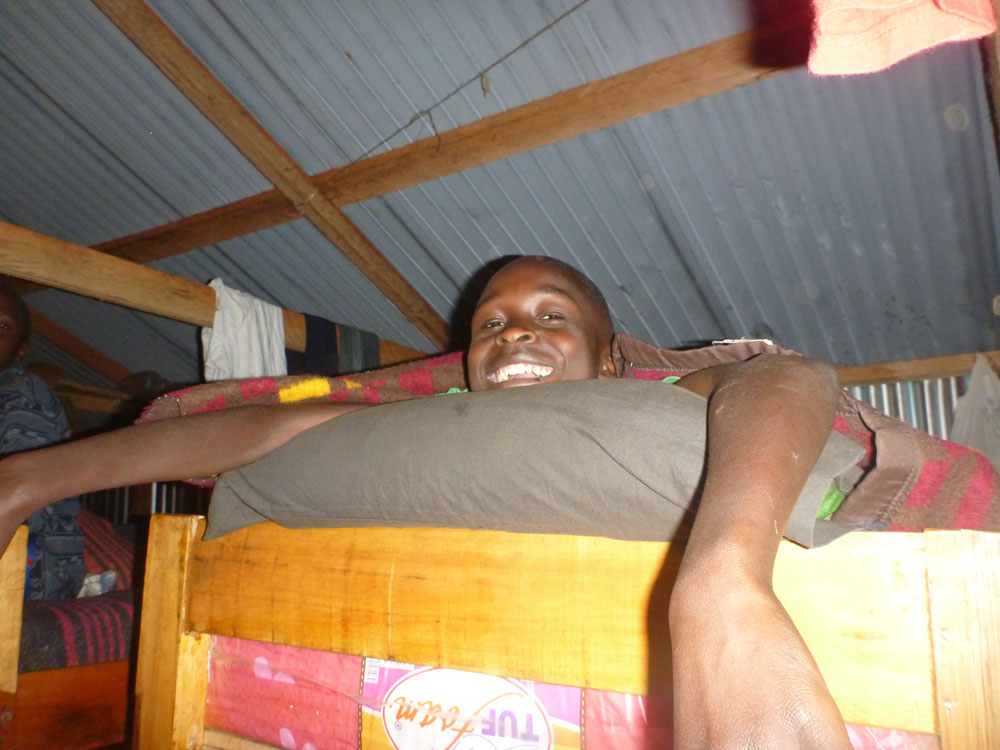Written on Thursday, July 19th 2012 from a cyber café in Kisii Town:
On Sunday, July 15th, I was in Kisii town (its really a city) with my new sisters. we went to an African carnival which in itself was very interesting. Being a mzungu (white person), I was quickly surrounded by a crowd of street boys. Almost every one of them was sniffing a bottle of glue, clearly drugged, and grabbing at me or asking for food and money. Most were barefoot and had dirty, torn clothing. There was one boy I noticed who looked different - not in appearance (as he was one of the dirtiest - a torn black t shirt, ripped, muddy, dirty, smelly jeans, and barefoot) but in stature. It is hard to explain, but something drew me to this boy. i began to talk to him, but it was clear he did not know any English. As i was surrounded by street boys, a very very old African man hobbled to me very slowly. Out of all the street boys that were there, he put his arm around the one I had begun to like. He turned to me and in a wise voice said “This boy, he is your brother. you must care for him. He is your brother." The old man then turned and hobbled away. I looked at the boy, and noticing his bare feet, decided I would buy him sandals. We walked for 30 minutes until we found them, and the boy did not say a word. Very clearly to me he was different the every other street boy, but I still could not explain why. I bought him (and a few other street boys) sandals, for 70 cents per pair, and left him to go back to the streets. Before I went, I asked him his name, and he said "Ted."
The next day, Monday, I went back to find Ted. I had written a note in English that was translated into Swahili that I read to many street boys, asking where I could find Ted. For 3 hours I searched, and was very disappointed when I could not find him. By this time, the other volunteers I was with thought I had gone completely crazy.
I went back on Tuesday to find my new friend. This time, I brought my camera with a photo of Ted on it and told the street boys, “Find me this kid.” I quickly figured out the problem - his name was actually Fred, not Ted. The day before, I had been searching for a boy who did not exist. Within 10 minutes, a street boy led me right to Fred, who we found sitting in a corner crying. I told him to come with me. First, we went to a small restaurant where I bought him food. He refused to make eye contact and spoke no English. We then went to a store where I bought him a new shirt, new pants, underwear (he had had none before), a jacket, and a small football. I also bought him food. He asked for a haircut, which I got for him (here they only costs 30 or 40 cents.) Fred led me back to his street boy friends where he distributed the food among them. By this time I had learned Fred lives in the streets, sleeps on the sidewalks and in the streets, and eats anything he can find, including other peoples’ garbage he finds by searching through piles of trash. I took his dirty clothes home to clean and I left, but impressed by his generosity and demeanor, I wanted to see him again. I told him to meet me in the same spot tomorrow.
The next day, Wednesday, I went to find Fred in Kisii. A crew of 4 street boys and I searched and searched with no luck, until finally someone said they had seen him. We found him playing with his new small football I got him. When he saw me from about 50 yards away, he ran toward me with gleaming from ear to ear. I told him I would take him back to Keumbu, where I live, and bring him to school. He seemed happy, so we left Kisii by motorbike on the 20 minute ride to Keumbu. Earlier that day, I had asked my father in Kenya, Pastor Robert Nyamwange, if he would meet Fred. I truly believed there was something different about this boy, and I could still not identify it. Pastor and his wife have adopted 6 children (4 girls, 2 boys) besides the 3 biological children they have (I live with 5 orphans in total). He said yes, but made it very clear not to bring him home before he meets him. He was hesitant because of the bad manners of most street boys, their addiction to sniffing glue, and their overall way of life. (years ago, street boys would wrap their hands in a plastic bag, reach into the toilets, get a handful of shit, and come up to you in the street and threaten to throw it in your face if you did not give them money). I agreed to Pastor's wish, and brought Fred to the school I volunteer at. I wanted to see how he would react, and how the other children would react to him. He was very shy and visibly frightened. Yet, he began to open up when the boys started playing soccer. He very quickly showed that he was one of the best players, and a few of the children began to talk to him.
When it was time to go home, against Pastor's commands, I took Fred with me. Pastor was not happy when I told him Fred was waiting for him at the street, but he told me to bring Fred to him. I did, and Pastor talked to him for an hour. During their talk, I was nervously watching, hiding out of their view. Pastor found out Fred's story, which is as follows: Fred is between 10 and 12 years old, he is not exactly sure. He grew up in Ogembo, a different region of Kenya, very happily with his mother and father. Then, his mother got sick and died (we're not sure of exactly what, but most likely tuberculosis). After his mother's death, his father began to do heavy drugs and go crazy. He physically beat Fred very bad. He threatened to kill Fred, and came at him with a machete in his hand. Fearing for his life, Fred ran from his house and found a home in the streets. This happened 3 years ago, and for 3 years Fred has been living as a street boy. He left his home when he was in 3rd grade (standard 3).
Luckily, Pastor also knew that Fred was very special. He saw in Fred the same thing I did from the moment I saw him. He told me to go with Fred and buy a school uniform, as he would attend school the next day. Fred and I went to the market to buy new leather shoes, two new collared shirts, two new pairs of shorts, two pairs of socks, and a red jumper. We also stopped by the clinic, where we both got tested for malaria. We began to communicate more and more, making each other laugh regularly. When we came home, he followed his new sisters in washing his legs, taking a shower, and cleaning his clothes. I bought other things for Fred, like pills to make the ringworms he had go away, and milk. The first thing a boy does when he goes to the streets is sniff glue. Every one of them does, because toxic glue is very cheap, it dulls hunger, it dulls sadness, and it dulls coldness. As you can imagine, a five year old boy living in the streets is very sad, very hungry, and at night very cold. Fred was no different. He said he had sniffed glue, and the symptoms were visible. Milk cleanses the body and makes the affect of sniffing flue disappear, so we put him on a diet full of milk. That night, for the first time in 3 years, he slept inside, on a bed, with a blanket, and without the fear of getting beaten or robbed.
On Thursday morning, he awoke very early for school. We went to Emmanuel Light Academy, and he looked very smart. Everyone had seen him the day before, and we put him into the 3rd grade class. Immediately a student from standard 4 came to me and said "No, we want Fred in our class. Please put him in our class." this student was followed by many more, some in standard 5 and some in standard 6, who all begged to have Fred in their class. We let Fred go to standard 5 because he became friends with a boy names Lenus in standard 5. When it was time for football, everyone went outside to pick teams. I selected 2 captains, and they each took turns picking players. Having been there for less than 1 full day, Fred was the second player picked. This was significant because they take soccer very seriously, and he had shown in one game that he was the best player there. The day before he had scored 2 goals, and his team won 2-1. After games time was over, he went back to class. He was now talking, laughing, and playing with many of the boys there. At the beginning of the day, I could easily find him because he was standing alone, out of place. By the end of the day, it took me very long - he looked just like every other boy there.
After class, I took Fred to the market to buy things he might need. I asked him what he needed, and for the first time he began to speak English. "Pencil, ruler" he said. In the end, the things he asked for were: exercise books for school, pencil, ruler, tooth brush, tooth paste, Vaseline, shoe polish and a brush for his new shoes, and a belt. I was very impressed, because I had not given him any instructions. I even gave him the money to go buy some of the items, and he brought back exactly what we talked about in one hand, and my change in the other. This was significant because he could have easily run away with my money, which was more than enough to buy food and glue. Yet he stayed, and seemed very happy. He was laughing more, and we were able to communicate even more by ourselves (previously, I had to find a translator everywhere we went).
On Friday, Fred went to school. Although he talks both his tribal language, Ekegusii, and Kenya’s national language, Swahili, he cannot write very well in Swahili and nothing at all in English. In the next 3 weeks, Fred will get extra tutoring in English, Swahili, and mathematics (one on one tutoring, everyday including Saturday and Sunday, for one month, costs $5.) Then, he will go to boarding school, which I will be paying for. Fred has impressed me by doing so many different things. In the market, there were many things I asked if he needed and he shook his head no. He is one of the only children I have met here who says "Thank you," and he says it in perfect English. Even small things, like after eating a peanut, he juggles the shell on his foot as if it were a soccer ball. Even though it is hard for us to talk, we have been communicating more and more using both English and Swahili words. The language barrier doesn’t affect us when shooting penalty kicks at each other, killing a chicken for dinner, or many other fun activities. We have been playing, laughing, and spending much time together. While I have done a lot of amazing things in Africa so far, they fail to even compare to how I feel about bringing Fred home. One day, I am confident you will meet Freddy. By that time, he will be speaking fluent English and I'm sure he will be an even better footballer. One day, one time you will love my new brother Fred too.


